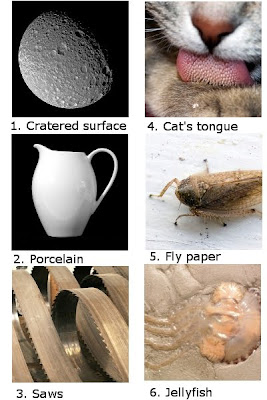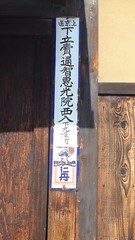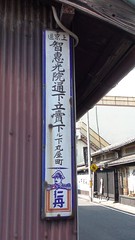The Foundation for Shamanic Studiesシャーマニズム研究財団
"Shamanism is a path of knowledge, not of faith, and that knowledge cannot come from me or anyone else in this reality. To acquire that knowledge, including the knowledge of the reality of the spirits, it is necessary to step through the shaman's doorway and acquire empirical evidence."
Michael Harner, Ph.D.
FSS Founder and President
Author of The Way of the Shaman
Core Shamanism Core shamanism is the universal or near-universal principles and practices of shamanism not bound to any specific cultural group or perspective, as originated, researched, and developed by Michael Harner. Since the modern world overwhelmingly lost its shamanic knowledge centuries ago due to political and religious oppression, the Foundation’s programs in core shamanism are particularly intended for modern peoples to reacquire access to their rightful spiritual heritage through quality workshops and training courses. Training in core shamanism includes teaching students to alter their consciousness through classic shamanic non-drug techniques such as repetitive drumming so that they can discover their own hidden spiritual resources, transform their lives, and learn how to help others. Core shamanism does not focus on ceremonies, such as those of Native Americans, which are part of the work of medicine men and women, persons who do both shamanism and ceremonial work.
Michael Harner's
The Way of the Shaman: Shamanic Journeying, Power, and HealingThe Basic Workshop in Core Shamanism (Weekend) Kyoto: March 13-14, 2010
Tokyo: March 27-28, 2010
During the Basic experiential workshop, participants are introduced to core shamanism, the universal and near-universal basic methods of the shaman to enter non-ordinary reality for problem solving and healing.
Particular emphasis is on the classic shamanic journey, one of the most remarkable visionary methods used by humankind to explore the hidden universe otherwise known mainly through myth and dream. Participants are initiated into shamanic journeying, aided by drumming and other techniques for experiencing the shamanic state of consciousness and for awakening dormant spiritual abilities, including connections with Nature. Practice includes comparisons by participants of their discoveries in shamanic journeys as well as being introduced to shamanic divination and healing. They are also provided with methods for journeying to meet and study with their own individual spirit helpers in nonordinary reality, a classic step in shamanic practice. Participants learn how the journey is utilized to restore spiritual power and health, and how shamanism can be applied in contemporary daily life to help heal oneself, others, and the Planet. Basic and Advanced courses to be continuously offered in Japan and Asia.
The Foundation for Shamanic Studies Faculty for Asia: Kevin Turner
shamanismjapan@yahoo.co.jp
Tel/fax: 075-723-4379
English website:
http://www.shamanism.orgJapanese website:
http://www.shamanism.org/workshops/japanese.htmlKevin Turner’s English bio:
http://www.shamanism.org/fssinfo/turnerbio.htmlKevin Turner's site:
http://www.shamanism-asia.comシャーマニズム研究財団
The Foundation for Shamanic Studies
「シャー マニズムとは、知識の道であって信仰の道ではない。そしてその知識は、私や或はこのリアリティ(現実)における他の誰からも得ることは出来ない。精霊達の 現実に関する知識を含むこの知識を身につけるには、シャーマンの門戸をくぐり、自らの経験を通して証拠を掴んでいかねばならない。」
マイケル・ハーナー Michael Harner, Ph.D
シャーマニズム研究財団創設者及び財団長
『シャーマンへの道』著者
コア・シャーマニズム
Core Shamanism コア・シャーマニズム(核心のシャーマニズム)とは、マイケル・ハーナーが考案、研究、発展させた、シャーマニズムにおけるほぼ普遍的と言える原理とその 実践のことであり、いかなる特定の文化組織や観点とも結びつくものではない。シャーマニックな知識の大方は、政治的/宗教的弾圧が原因で、何世紀も前に甚 だしく失われてしまった。その様な背景から当財団のコア・シャーマニズムのプログラムは、現代人が良質のワークショップやトレーニングを通して、正当な精 神的文化遺産との繋がりを取り戻せるようにすることを意図している。コア・シャーマニズムのトレーニングでは、参加者が意識を変性させていく際に、繰り返 されるドラムの音の様な伝統的シャーマニズムの非薬物的手法を使い、参加者がどのように自らの隠された精神的源泉を発見し、人生を変容させ、また他者の助 けとなっていけるか、ということも教えられる。コア・シャーマニズムは、例えばネイティブアメリカン達が行う様なセレモニー(儀式)には主眼を置かない。 これらは、シャーマニズムと儀式行為の両方を行うメディスンマンやメディスンウーマン達の仕事の一部である。
シャーマンへの道:シャーマンの旅、パワーとヒーリング
コア・シャーマニズム公式ベーシックワークショップ
The Way of the Shaman workshop
ベーシックの体験的ワークショップでは、参加者はシャーマンのほぼ普遍的基本体系であるコア(核心の)・シャーマニズムに触れ、問題解決やヒーリングの為 に非日常的リアリティへと入っていく。 ここで特に重要視されるのが古典的なシャーマンの旅である。これは、人類が隠された宇宙を探究する為に使った、最も注目に値する先見的な手法であり、この 手法無しには、隠された宇宙は主に神話や夢を通してのみしか知り得ないものであった。 参加者はシャーマンの旅をする手ほどきを受け、ドラムの音やその他のテクニックの助けを得ながらシャーマン的意識状態を体験し、大自然と繋がることを含む 眠っているスピリチュアルな能力を目覚めさせていく。 またシャーマンの旅の中での発見について、参加者同士で話し合ったり、シャーマンの直感的予見やヒーリングにも実習の中で触れていく。 更に、旅をする中での非日常的リアリティにて自らのスピリットヘルパーと出会い、そこから学んでいくというシャーマンの実践に於ける古典的ステップの方法 も伝授される。 このように参加者達は、この旅が如何にして自らのスピリチュアルなパワーや健康を回復させるのに役立つのか、また如何にしてシャーマニズムが現代の日常生 活の中で自分や他人を癒したり、この惑星を癒すことに適用できるのかを学ぶ。
マイケル・ハーナーによるコースデザイン講師:ケヴィン・ターナー
■ 京都市:3月13日(土)〜14日(日)定員18名
シャーマニズム研究財団公式コース
シャーマンへの道 (通訳あり)33,000円
■ 東京都世田谷区:3月27日(土)〜28日(日)定員18名
シャーマニズム研究財団公式ワークショップ
シャーマンへの道 (通訳あり)33,000円
© JapanVisitor.com
Yahoo Japan Auction ServiceBook a Japanese Hotel with BookingsJapanese FriendsJapan Job SearchTokyo ViceTagsJapan Tokyo Kyoto Shamanism Workshop Japanese






































